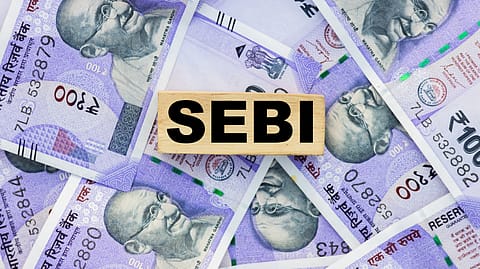Sebi tightens ESG bond rules to curb 'purpose-washing', sets strict disclosure norms
Sebi's new framework mandates issuers to ensure funds are used as intended, with clear categories and adherence to international standards. Issuers must also appoint independent reviewers for compliance, aligning with global ESG standards.

Capital markets regulator Sebi (Securities and Exchange Board of India) has notified a comprehensive framework for companies looking to raise money through ESG (Environment, Social and Governance) bonds, excluding green bonds. The move aims to prevent fake claims, define clear categories, establish strict disclosure rules, and align with global standards.
The new framework follows Sebi's approval on September 30, 2024, of a proposal to specify frameworks for the issuance of social bonds, sustainability bonds, and sustainability-linked bonds, alongside green debt securities, all collectively termed as ESG Debt Securities.
To mitigate the risk of "purpose-washing" and not being "true to label," an issuer must ensure that when raising funds for social or sustainability objectives, they monitor whether their operations are genuinely reducing adverse social or sustainable impacts as envisaged.
Funds raised through social bonds or sustainability bonds must not be used for purposes outside their stated category. If any such instance comes to light, the issuer must disclose it to investors and, if required by a majority of debenture holders, undertake early redemption of such debt securities.
Sebi has warned against "purpose-washing," stating that issuers must quantify negative externalities and avoid false certification claims. Purpose-washing may be defined as making false, misleading, unsubstantiated, or otherwise incomplete claims about the purpose for which bonds are issued.
The regulator defines social bonds as "a debt security issued for raising funds... to be utilised for social project(s) that directly aim to address or mitigate a specific social issue and/or seek to achieve positive social outcomes for a target population."
Sustainability-linked bonds are defined as "a debt security, which has its financial or structural characteristics linked to predefined sustainability objectives of the issuer, subject to predefined Sustainability Key Performance Indicators (KPIs) and Sustainability Performance Targets (SPTs)."
Recommended Stories
Sebi emphasises that issuers desirous of issuing such bonds must not use "misleading labels," "hide trade-offs," or "cherry-pick data" from research to highlight social or sustainable practices while obscuring unfavourable ones.
Issuers must also appoint an independent third-party reviewer to verify ESG compliance, ensuring no conflict of interest and adherence to international standards.
The ESG debt securities must also align with global standards such as ICMA principles, Climate Bonds Standard, ASEAN standards, or EU standards, according to the regulator. Additionally, issuers of sustainability-linked bonds must disclose detailed KPIs, SPTs, and mitigation plans for risks affecting target achievement.
Sebi has stipulated that its circular will come into force for the issuance of ESG debt securities effective June 5, 2025.
(INR CR)